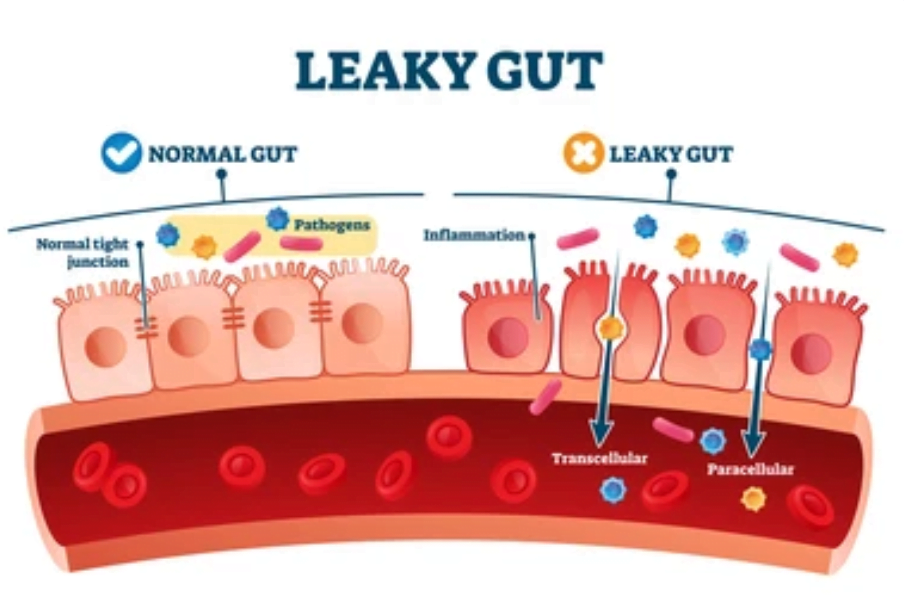 A leaky gut, also known as increased intestinal permeability, is a condition where the lining of the small intestine becomes more porous, allowing undigested food particles, toxins, and bacteria to leak into the bloodstream. This can lead to various health issues, including nutrient deficiencies.
A leaky gut, also known as increased intestinal permeability, is a condition where the lining of the small intestine becomes more porous, allowing undigested food particles, toxins, and bacteria to leak into the bloodstream. This can lead to various health issues, including nutrient deficiencies.
Here’s how a leaky gut can contribute to nutrient deficiencies:
- Malabsorption: The lining of the small intestine is responsible for absorbing nutrients from the food we eat. When it becomes leaky, it can’t effectively absorb nutrients, leading to malabsorption. Essential nutrients such as vitamins (e.g., vitamin B12, vitamin D) and minerals (e.g., iron, calcium) may not be properly absorbed, resulting in deficiencies.
- Damage to gut villi: The intestinal lining is covered with finger-like projections called villi, which increase the surface area for nutrient absorption. In a leaky gut, these villi may be damaged or blunted, further reducing the absorption capacity and causing nutrient deficiencies.
- Disruption of gut flora: The gut contains a diverse community of beneficial bacteria known as the gut microbiota. These bacteria play a crucial role in breaking down complex nutrients and producing certain vitamins. In a leaky gut, the balance of the gut microbiota may be disrupted, leading to decreased nutrient breakdown and absorption.
- Increased inflammation: A leaky gut can trigger an immune response as the body detects the foreign substances entering the bloodstream. Chronic inflammation in the gut can impair the function of nutrient-absorbing cells and disrupt normal digestive processes, contributing to nutrient deficiencies.
- Loss of proteins: The tight junctions between intestinal cells become compromised in a leaky gut, allowing proteins to pass through into the bloodstream. Some of these proteins may be essential for nutrient transport and metabolism, and their loss can further exacerbate nutrient deficiencies.
- Reduced production of digestive enzymes: Enzymes play a key role in breaking down food into smaller, absorbable components. Inflammation and damage caused by a leaky gut can reduce the production of digestive enzymes, making it harder for the body to extract nutrients from food.
- Food sensitivities: The leakage of undigested food particles into the bloodstream can trigger immune responses and food sensitivities. In some cases, this can lead to avoidance of certain foods, resulting in a reduced intake of essential nutrients found in those foods.
A leaky gut can disrupt the delicate balance of nutrient absorption and metabolism in the body, potentially leading to nutrient deficiencies and a range of health issues. If you suspect you have a leaky gut or nutrient deficiencies, I’d love to hear from you. A GI MAP and Wheat Zoomer test can help you determine if a Leaky Gut is contributing to your overall health issues. Set up a Complimentary Consult below.




